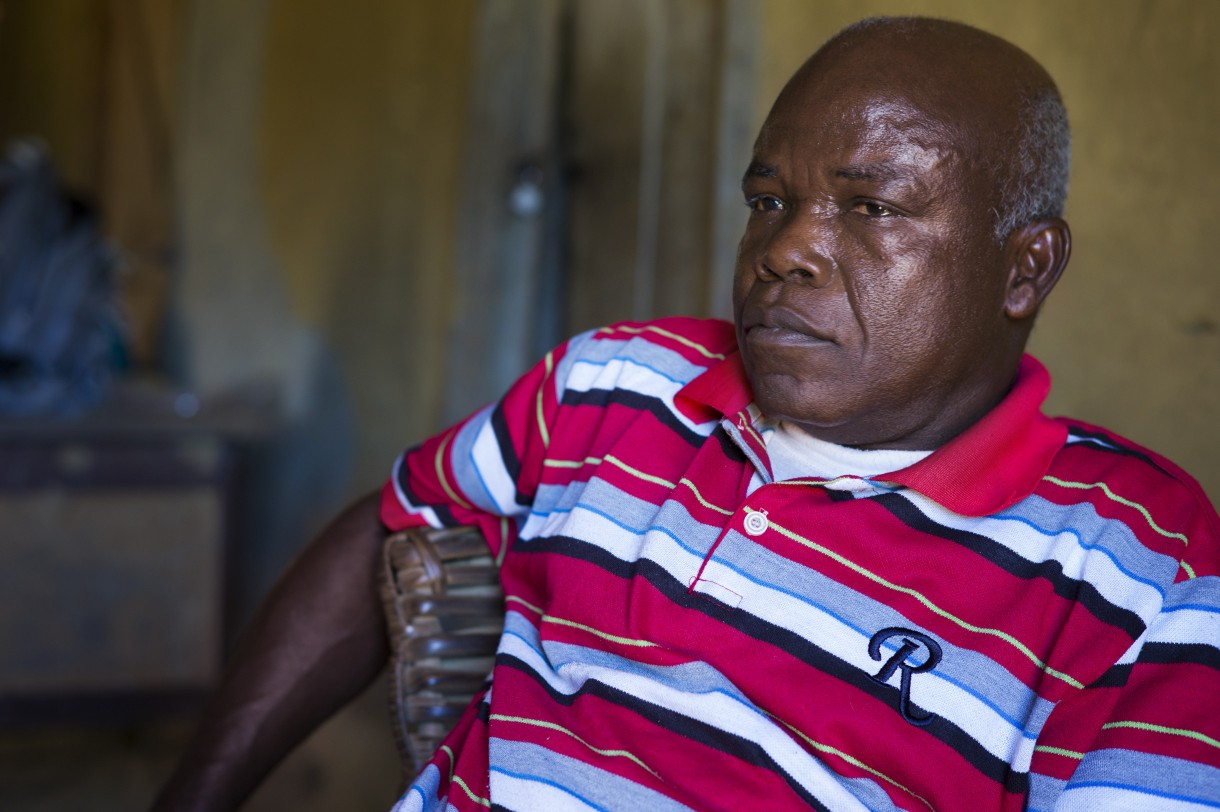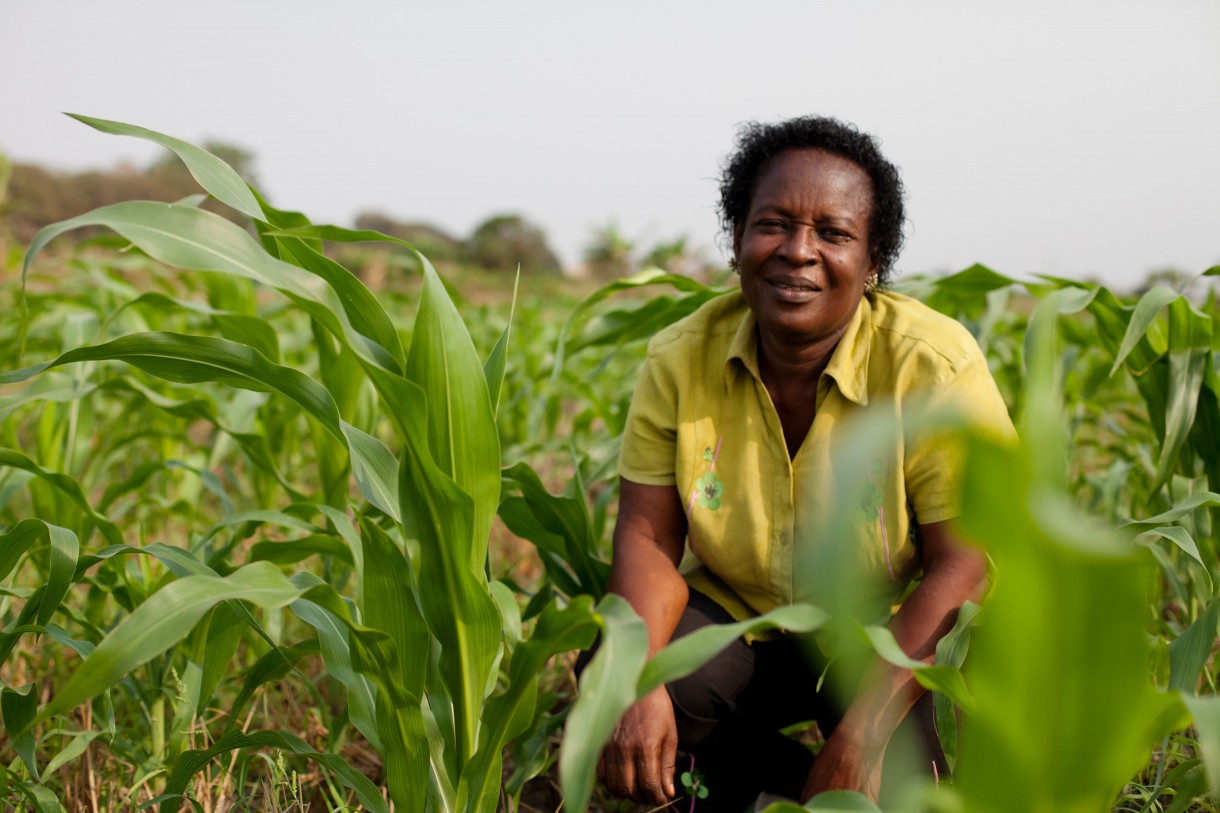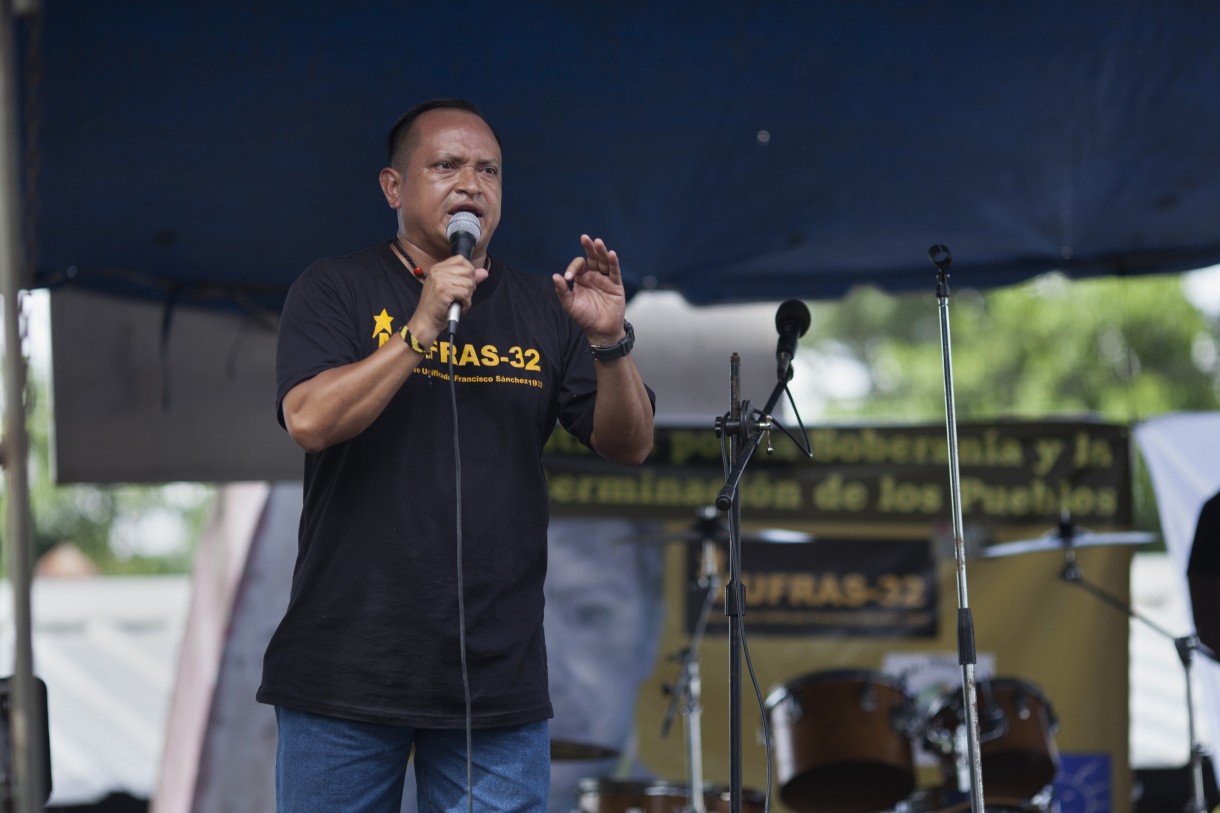What do farmers want? Here’s what they’ve told me
We all rely on farmers to grow our food. But what do they want in return? Here are four common themes I’ve heard all over the world.
One of the best and worst parts of my job is talking with farmers. Every encounter reminds me that working and surviving as a farmer in some places is a constant struggle, and the farmers I meet inspire me to work as hard as they do. But I also see their lives made worse by climate change, pollution, encroachment by mining and other industries, and lack of support from government.
Luckily, Oxfam is working to help them, and I continue to think that with the right kind of support, and an innovative spirit, farmers can prosper: feeding their families and the rest of us, too. Here are a few of the messages I’ve heard from the farmers I met recently.
Farmers want to protect the environment.

When I first met Anthony Tarpeh, I asked him “are you a farmer?” To which he replied “Look at my hands” and held them up for me to see. They were the calloused hands of a working man. They spoke eloquently about who he is.
We were sitting in his village in Liberia, a place called Komonah. We talked about the mighty forests surrounding his village, and the nearby palm plantation that Tarpeh and others said intended to expand into the area. Tarpeh said they feared that the palm oil company would cut down the forest, and force Tarpeh and his neighbors to move away.
“From the time God created the land, we are here since the creation. We’re the first ones here. We have a right to these resources under customary law,” he told me. “Without the forest, we will die.”
One of the biggest threats to the world’s environment is clear cutting forests, which releases carbon into the atmosphere and contributes to the destructive effects of climate change. For the people living in and near these forests, they are a source of food, and products they can sell like resin, honey, and bamboo for building all sorts of things. Many forest people clear small areas, grow crops for a year or two, then move to another area and let the forest regenerate and restore the soil. They have done this for centuries. Losing the forests will affect all of us eventually, but it will affect people like Tarpeh immediately.
Earlier this year, Oxfam asked food companies to look at where they get their palm oil, and ensure that their suppliers do not cut down old forests and displace communities. Our supporters helped push these companies to commit to such policies, which we hope will help small-scale farmers like Tarpeh survive.
Farmers want governments to provide a fair share of support.

Just outside Accra, Ghana, there’s a farmer cooperative of about 90 rice and maize farmers that jointly manages an irrigation system. One of the farmers is Emma Ankrah, who is in her early 60s and has been farming in the area for about 15 years.
Like most farmers, Ankrah struggles with rising costs and low prices for her rice. She lives alone and has to hire people to help her run her small plots, just under two acres all together. The hard work does not seem to bother her, but raising the capital is difficult. “We borrow, borrow, borrow,” she told me.
Ankrah joined a campaign led by the Peasant Farmer Union (operating with support from Oxfam) that convinced Ghana’s finance minister to devote 15 percent of its revenue from the country’s newfound oil resources to help small-scale farming. They call it the “oil for agriculture” campaign. Oxfam has been working with a group of organizations in the country to influence how the country tracks and spends its oil money, and this campaign is the next step to building more citizen participation.
“Small-scale farmers in Ghana need help,” Ankrah said, and they are speaking up to ask for it. “We feel like we have to ask. If you need something, and the money is there, they won’t know we need it unless we ask.” Ankrah said she could use an affordable loan scheme, and access to equipment like tractors her cooperative could buy and share among its members.
Even if Ghana gets considerably less oil money than once thought, farmers in Ghana have a right to a piece of it. My colleague in Accra, Mohamed-Anwar Sadat Adam, who leads Oxfam’s campaign work in Ghana, told me, “agriculture’s contribution to the economy here is clear: it’s the backbone. It still employs the majority of Ghanaians, 60 percent of workers and [contributes] one third of GDP.” With so many people relying on farming, it seems like the government could be investing in farmers so they can get a larger share.
Farmers want big companies to respect their rights.

I spent part of this past September in El Salvador, where I met Hector Berrios. He says the region where he lives is under threat by a Canadian and Australian mining company that wants to start mining there, and that the area is better suited to agriculture. “Farming is a clear alternative to mining, it’s sustainable and feasible; it’s a long-term option.”
I walked with Berrios around a small demonstration farm he and others are running. “Right over there is the Rio Viejo, that’s where we get water. It’s the key to this farm so we need to preserve it. If it’s contaminated, there’ll be no agriculture here.”
Berrios and others were experimenting with growing tomatoes, peppers, and cucumbers as a way to prove that there are other ways to make a living than industrial gold mining, which he says will bring more pollution than jobs.
We talked near a massive greenhouse he and others had built, where they were raising 3,000 plants. Next door, they had another greenhouse with 2,000 pepper plants. With more investment from the government and others, Berrios argues that there can be more jobs in agriculture, and farmers can make a better living than they are now.
Berrios runs an organization called MUFRAS-32, which is leading the movement to block mining in Cabañas, and searching for viable alternatives. Controversy around the proposed mine has led to conflict, and several outspoken opponents were murdered, and many others have received anonymous death threats. When Berrios showed me around one field, he said if they allow the mine to go ahead, farmers are concerned about what will happen to their farms. “Mining is like someone points a gun at you,” he said, pointing a cucumber like the barrel of a firearm. “But it kills you slowly.”
The mining companies behind the proposed project in Cabañas have sued the government of El Salvador for $300 million in an attempt to force the country to issue it a permit to mine, against the wishes of nearby farmers who fear for their water and land. Oxfam supporters helped call attention to this case during a hearing at a special tribunal at the World Bank on El Salvador’s Independence Day last September, and called for the company to drop its case and leave the country. It’s all part of Oxfam’s Right to Know, Right to Decide campaign, which is pushing for more respect for farmers’ right to be consulted about major decisions that will affect the environment and their right to make a decent living.
Farmers want to innovate and learn.

One of the most hopeful stories I can remember concerns a woman I met in Cambodia named Sopheap Meas, a rice farmer in the southern part of the country. Meas told me that a few years earlier she started experimenting with some different ways to grow rice she had learned from one of Oxfam’s partners, and it had some profound changes on her rice production:
“I’m doing a lot better now…before we had more land but only produced 1.8 tons per year. Now I only have about .5 hectares (about 1.25 acres) because I gave some [land] to my siblings, but I can produce four tons in the wet season. And if there is enough water [in the reservoir] I can grow in the dry season also and grow six tons per year. Before I borrowed rice from others. Now my neighbors borrow rice from me. My life is better; I’m not rich but I’m a lot better off.”
Meas was using something called the System of Rice Intensification (SRI), which involved a number of techniques that help farmers grow more rice with fewer seeds, using less water, fertilizer, and pesticides. Her neighbors noticed how proficient she had become, and called on her to train others. They even encouraged her to become the deputy chief of her village, an unusual role for a woman in rural Cambodia.
When Oxfam and our partners help introduce SRI to farmers like Meas, we also encourage farmers to learn together, experiment with a range of growing techniques, and create new ways to increase their production. This helps them adapt to a changing climate, without counting on expensive technology developed in a lab some place. Farmers become innovators: They frequently sow the same seeds, but they can figure out ways to grow stronger roots, so the plant can better resist pests and diseases, floods and droughts. Our partners convene farmers into groups so they can learn from each other and together build a culture of innovation and learning that helps them adapt and survive.
Your support helps farmers around the world overcome poverty and feed their families. Be part of lasting change: make a tax-deductible year-end gift today. Donate now >